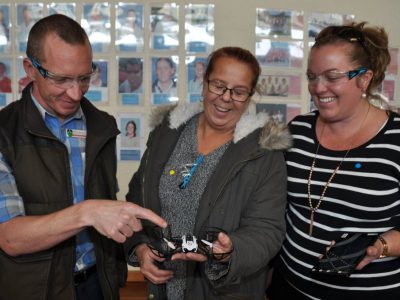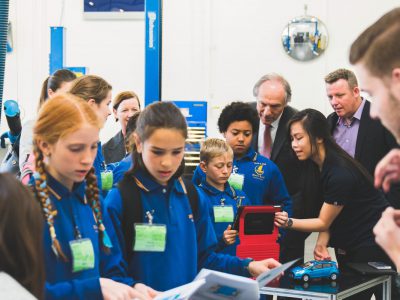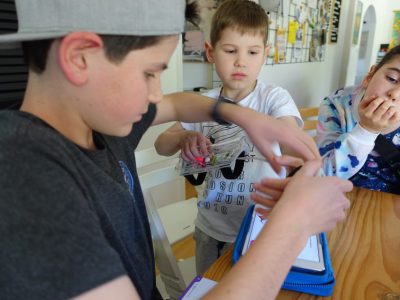Posted on The Australian, March 7, 2017
When analysts talk about the digital divide, they tend to focus on the differences between the haves and have-nots. Increasingly, I see a more important division between those who understand what the digital economy holds — and how to take advantage — and those who remain stuck in the pre-digital mindset that may be increasingly irrelevant.
This contrast was recently thrown into sharp relief for me. Just days after a tour of the Tesla car factory in the US where I saw first-hand self-driving vehicles being assembled by robots, I was party to a conversation with someone lamenting the lack of young people wanting to become truck drivers.
If Australia is to capitalise on the opportunities of the digital age and build a prosperous digital economy, we need a different mindset — one that recognises how to leverage and harness emerging disruptive technologies to pave the way for new jobs and industries, not just perpetuate old ones.
The key to changing mindsets is education. The challenge for Australia right now is ensuring our education system delivers forward-thinking, digital-savvy workers and entrepreneurs who can capitalise on rapidly converging technologies including automated algorithms, machine learning, artificial intelligence, big data, Blockchain and the internet of things.
I’m not talking about curriculum — we already have agreement on the need for more STEM and digital technology subjects to equip our future workforce. I’m talking about making sure we invest in our ICT teachers with the appropriate skills and empower them to deliver the new digital and technology curriculum in a way that engages and inspires our young people.
Despite the fact that demand for STEM-related jobs such as ICT and engineering is growing at a rate 50 per cent higher than other professions, there has been a marked decline in Australia’s performance and engagement levels in STEM subjects against international standards over the past decade. According to the National STEM School Education Strategy, arresting this performance shortfall will require a range of complementary measures to:
• increase student ability, engagement, participation and aspiration
• increase teacher capacity and STEM teaching quality
• support STEM education opportunities within schools
• facilitate effective partnerships with tertiary education providers, business and industry
• build a strong evidence base.
While various initiatives have been introduced in recent years to improve ICT school education and drive interest in STEM-related studies and careers, Australia deserves a co-ordinated program capable of delivering an integrated approach.
The ACS looks forward to meeting with federal Education Minister Simon Birmingham later this month to discuss our proposal for the introduction of a comprehensive model based on the successful British Computing at School (CaS) program. Co-ordinated and managed under the auspices of BCS, the Chartered Institute for IT, the CaS program has provided professional development for more than 25,000 ICT teachers at 1600 schools since 2013.
Modelling the proven British approach, the ACS proposes an Australian ICT Educators Program to establish and co-ordinate a professional ICT teaching practice. The program would create collaborative networks between schools, universities, industry and professional bodies to facilitate the delivery of high-quality, low-cost professional development that help teachers better engage with digital technologies and quickly build their knowledge and skills.
By gaining access to the world-class resources and proven BCS delivery models, we can effectively shortcut the work involved in implementing the program.
This challenge is not unique to Australia. It is a global issue that nations must recognise and embrace. Those early on this curve will be first to benefit in the race for digitally savvy human capital.
Our ASEAN neighbour Malaysia has also embarked on the race for digital skills, declaring 2017 to be the Year of the Internet Economy. I look forward to joining world-renowned speaker Don Tapscott next month to present at the first international ICT infrastructure and Digital Economy Conference Sarawak 2017.
Anthony Wong is president of the ACS and chief executive of AGW Consulting P/L, a multidisciplinary ICT, intellectual property legal and consulting practice.












































